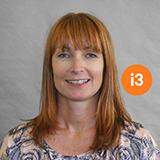 The potential benefits of mobile health (mHealth) programmes, such as using text messages to deliver diabetes self management support, are broad. These benefits are not necessarily based on the size of the effect, but the breadth and depth of their reach into populations who need the greatest support.
The potential benefits of mobile health (mHealth) programmes, such as using text messages to deliver diabetes self management support, are broad. These benefits are not necessarily based on the size of the effect, but the breadth and depth of their reach into populations who need the greatest support.
Our research paper found that this approach could have promise, with a small reduction in HbA1c at 9 months in adults with poorly controlled diabetes. This study is unique because it targeted patients who were struggling to control their diabetes (with an HbA1c >64mmol/mol/ 8%), those living in rural and remote areas, and those from priority populations, such as Māori and Pacific people. They are more likely to be in the lower socioeconomic quintiles, with worse health statistics, and have been traditionally underserved by existing health services.
The intervention was codesigned with patients and clinicians, and was derived from behaviour change theory. End users were engaged at all levels: an institutional Māori advisory group advised on the research question, and the research project included Māori and clinical co-investigators; a health service based Māori advisory group contributed throughout the development of the intervention and research design; and patients and clinicians were involved in designing and pre-testing content. The benefit of this approach is that it allows assessment of cultural appropriateness. This is likely a reflection of the level of involvement of the target population.
The potential of mHealth programmes rests on the ubiquity of mobile phones—New Zealand has more mobile phone subscriptions than people. This makes them an ideal way to deliver health information, promotion, and support to those who aren’t able to access these things in other ways. But it is essential that mHealth interventions are designed specifically with, and for, these cohorts, and that researchers design evaluations to measure both the reach into priority populations and the impact on those who need it.
If we are to reap the benefits of mHealth programmes, it is important that researchers develop interventions that suit all of the population and not only more privileged groups. We need to do more than measure the impact of interventions on those who find it easy to get the support need. We would like to see this study recognised for the efforts we went to to reach and engage those who need more support, and for the diversity of its participants (23% Māori, 13% Pacific, 34% rural, 38% baseline HbA1c >85/10%). We would also like to see more research studies and programme evaluations measure their reach into priority populations. In this way, we can develop a true picture of the benefits of the delivery of health interventions through mobile phones.
Robyn Whittaker is a public health physician and mHealth researcher working for the National Institute for Health Innovation at the University of Auckland, and the Waitemata District Health Board in New Zealand. Follow Robyn on Twitter @rawegd
Competing interests: Please see full statement on the research paper.
